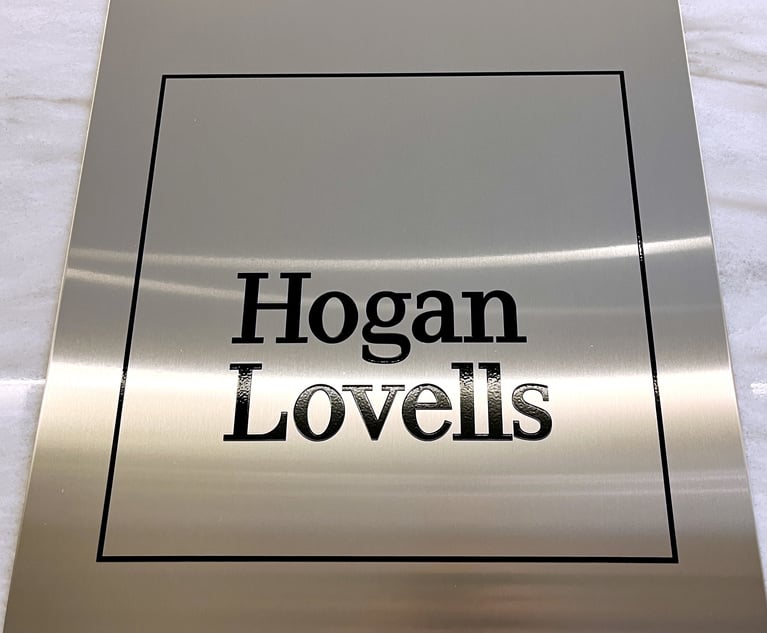Law Firms Remain a 'Great Target' as US Firm Hit in Alleged Chinese Hack
Hackers reportedly went after an unnamed firm known for its IP work—a stark reminder law firms hold sensitive information for not just one client, but many.
February 20, 2019 at 05:11 PM
4 minute read
The original version of this story was published on The American Lawyer
 Photo: Shutterstock.com
Photo: Shutterstock.com
Law firms continue to be vulnerable to state-sponsored incursions from China, Russia and Iran, as demonstrated by a recent report detailing an alleged Chinese hack into the systems of a U.S. firm known for its expertise in intellectual property.
Internet technology company Recorded Future reported that the unnamed law firm, with clients in the pharmaceutical, technology, electronics, biomedical and automotive sectors, was one of three targets of a group of Chinese hackers between November 2017 and September 2018. The other victims were an international apparel company and a Norwegian cloud services provider.
In all three incidents, researched found that the hackers—a group known as APT10 that is backed by a unit of the Chinese Ministry of State Security—used stolen user credentials to access third-party software used by the companies, and leveraged that access to further encroach upon internal systems.
The law firm was penetrated first, in late 2017, followed by the apparel company a few months later and Norway's Visma in August 2018. In spite of that staggered order, and the fact that Recorded Future research partner Rapid 7 discovered the breach into the apparel company using clues garnered while probing the incursion into the law firm, the attacks were conducted independently of each other.
“It wasn't a cascade,” said Priscilla Moriuchi, director of strategic threat management at Recorded Future. “They were all compromised in parallel.”
As law firms and other businesses are relying more on third-party providers, like remote-access applications Citrix and LogMeIn, they have increased their vulnerability.
And law firms may be especially appealing targets, not because of who they are, but because of the work they do for their clients. (The Recorded Future report described the targeted firm as “a U.S. law firm specializing in intellectual property law” that “has a dedicated China practice aimed at assisting Chinese companies entering the U.S. market.”)
“They are such a great target because they have access to a good deal of non-public information,” Moriuchi said of law firms in general. “Companies may be the ultimate target, and law firms are just a way to get the data.”
This information is appealing not just to criminal entities but also to state actors.
“We talk a lot about intellectual property theft, but for law firms, the type of data they have is a much broader suite of intellectual property,” Moriuchi said, citing strategic plans, details on pending mergers and acquisitions, and documents laying out businesses' legal responsibilities.
“All these things are useful to give an adversary this unfair advantage,” she added.
One example dates back to 2010, when an Australian resources conglomerate was in the midst of an effort to acquire a Canadian producer of potash. Hackers linked to computers in China succeeded in breaching the systems of several Canadian law firms involved in the transaction. Observers speculated that a chemical company owned by the Chinese government would be a loser if the deal went through. But after the hackers gained access to the sensitive information about the transaction, it fell apart.
Just as in the latest cyber attack, the names of those Canadian firms were never revealed. But the high odds that the public will likely never be able to tie a firm to a specific breach should be cold comfort.
“They live in the same threat environment as their clients,” Moriuchi said. “If they work with a lot of defense contractors or aerospace manufacturers or tech companies, those are sophisticated targets for nations like China, Russia and Iran.”
If step one is recognizing that they are desirable targets, step two for firms is to become more vigilant about managing their supply chain—the third-party apps they may rely on to run their systems. One part of this is increased attention to permissions: distinguishing between regular users, administrative users and those who need special access—a process known as network segmentation.
Moriuchi also cautioned that law firms aren't just high-value targets, they are efficient targets, thanks to their large volume of clients.
“Attackers are not just victimizing that firm for one potential target, but for a lot of them,” she said. “They've got an extra responsibility to make sure their networks are protected.”
Read More:
'Dark Overlord' Hack Shows Mounting Cyber Risks for Law Firms
This content has been archived. It is available through our partners, LexisNexis® and Bloomberg Law.
To view this content, please continue to their sites.
Not a Lexis Subscriber?
Subscribe Now
Not a Bloomberg Law Subscriber?
Subscribe Now
NOT FOR REPRINT
© 2025 ALM Global, LLC, All Rights Reserved. Request academic re-use from www.copyright.com. All other uses, submit a request to [email protected]. For more information visit Asset & Logo Licensing.
You Might Like
View All
Texas-Based Ferguson Braswell Expands in California With 6-Lawyer Team From Orange County Law Firm
2 minute read

Hogan Lovells Hires Quinn Emanuel IP Litigator in San Francisco

Farella Elevates First Female Firmwide Managing Partners
Trending Stories
- 1'A Death Sentence for TikTok'?: Litigators and Experts Weigh Impact of Potential Ban on Creators and Data Privacy
- 2Bribery Case Against Former Lt. Gov. Brian Benjamin Is Dropped
- 3‘Extremely Disturbing’: AI Firms Face Class Action by ‘Taskers’ Exposed to Traumatic Content
- 4State Appeals Court Revives BraunHagey Lawsuit Alleging $4.2M Unlawful Wire to China
- 5Invoking Trump, AG Bonta Reminds Lawyers of Duties to Noncitizens in Plea Dealing
Who Got The Work
J. Brugh Lower of Gibbons has entered an appearance for industrial equipment supplier Devco Corporation in a pending trademark infringement lawsuit. The suit, accusing the defendant of selling knock-off Graco products, was filed Dec. 18 in New Jersey District Court by Rivkin Radler on behalf of Graco Inc. and Graco Minnesota. The case, assigned to U.S. District Judge Zahid N. Quraishi, is 3:24-cv-11294, Graco Inc. et al v. Devco Corporation.
Who Got The Work
Rebecca Maller-Stein and Kent A. Yalowitz of Arnold & Porter Kaye Scholer have entered their appearances for Hanaco Venture Capital and its executives, Lior Prosor and David Frankel, in a pending securities lawsuit. The action, filed on Dec. 24 in New York Southern District Court by Zell, Aron & Co. on behalf of Goldeneye Advisors, accuses the defendants of negligently and fraudulently managing the plaintiff's $1 million investment. The case, assigned to U.S. District Judge Vernon S. Broderick, is 1:24-cv-09918, Goldeneye Advisors, LLC v. Hanaco Venture Capital, Ltd. et al.
Who Got The Work
Attorneys from A&O Shearman has stepped in as defense counsel for Toronto-Dominion Bank and other defendants in a pending securities class action. The suit, filed Dec. 11 in New York Southern District Court by Bleichmar Fonti & Auld, accuses the defendants of concealing the bank's 'pervasive' deficiencies in regards to its compliance with the Bank Secrecy Act and the quality of its anti-money laundering controls. The case, assigned to U.S. District Judge Arun Subramanian, is 1:24-cv-09445, Gonzalez v. The Toronto-Dominion Bank et al.
Who Got The Work
Crown Castle International, a Pennsylvania company providing shared communications infrastructure, has turned to Luke D. Wolf of Gordon Rees Scully Mansukhani to fend off a pending breach-of-contract lawsuit. The court action, filed Nov. 25 in Michigan Eastern District Court by Hooper Hathaway PC on behalf of The Town Residences LLC, accuses Crown Castle of failing to transfer approximately $30,000 in utility payments from T-Mobile in breach of a roof-top lease and assignment agreement. The case, assigned to U.S. District Judge Susan K. Declercq, is 2:24-cv-13131, The Town Residences LLC v. T-Mobile US, Inc. et al.
Who Got The Work
Wilfred P. Coronato and Daniel M. Schwartz of McCarter & English have stepped in as defense counsel to Electrolux Home Products Inc. in a pending product liability lawsuit. The court action, filed Nov. 26 in New York Eastern District Court by Poulos Lopiccolo PC and Nagel Rice LLP on behalf of David Stern, alleges that the defendant's refrigerators’ drawers and shelving repeatedly break and fall apart within months after purchase. The case, assigned to U.S. District Judge Joan M. Azrack, is 2:24-cv-08204, Stern v. Electrolux Home Products, Inc.
Featured Firms
Law Offices of Gary Martin Hays & Associates, P.C.
(470) 294-1674
Law Offices of Mark E. Salomone
(857) 444-6468
Smith & Hassler
(713) 739-1250






